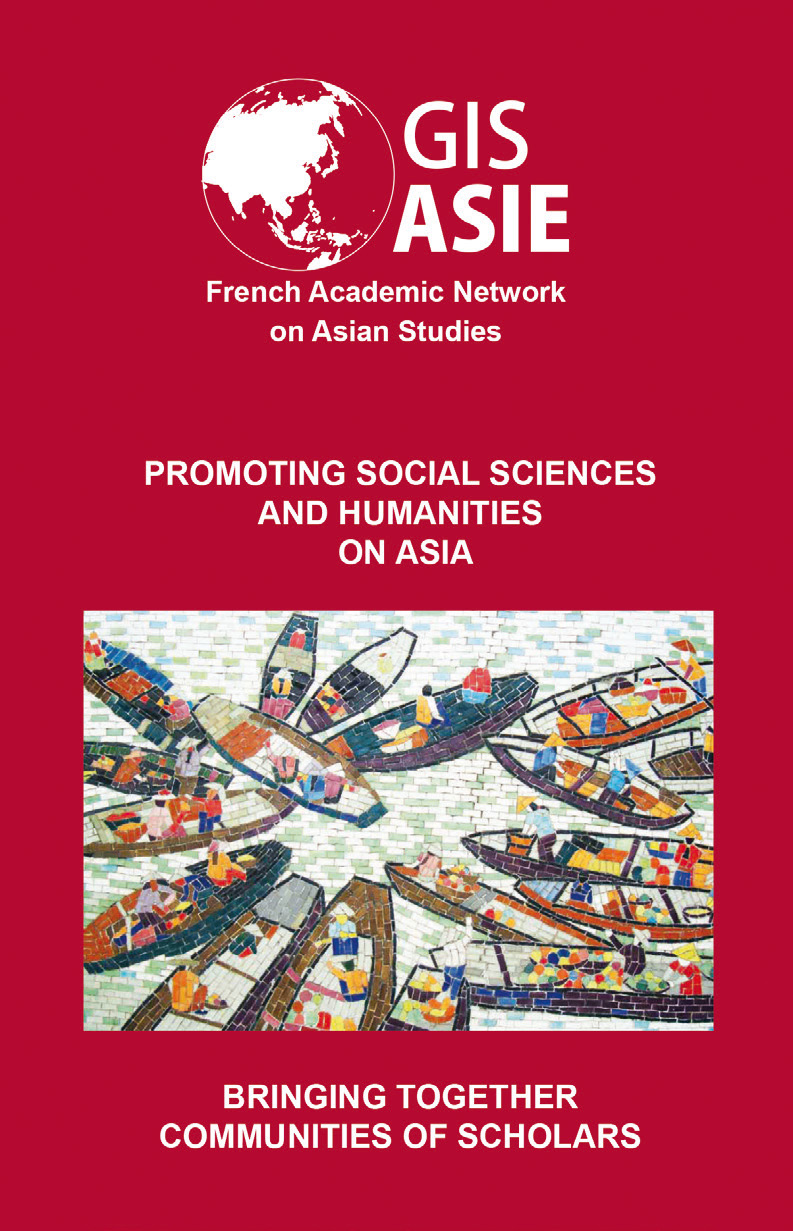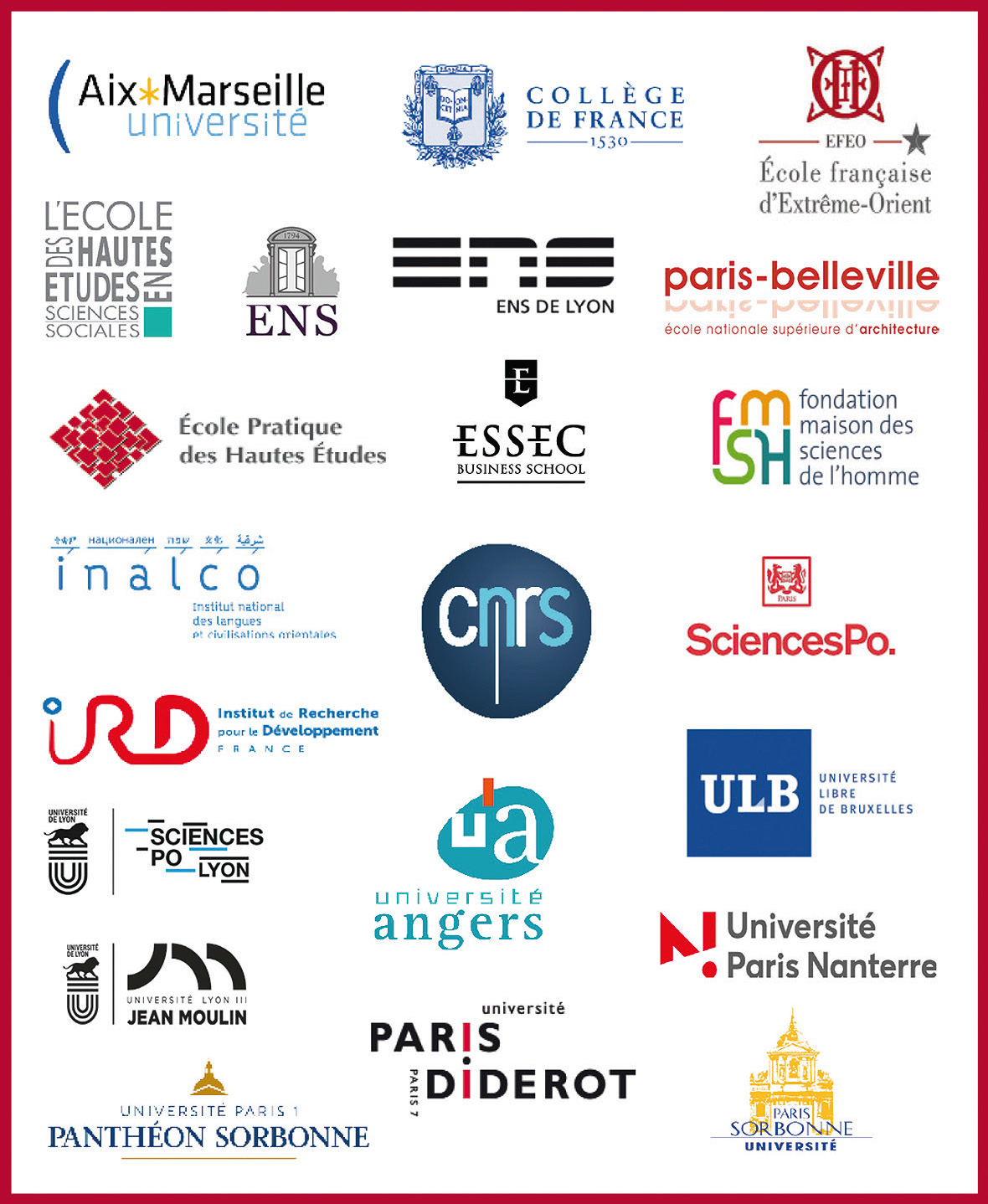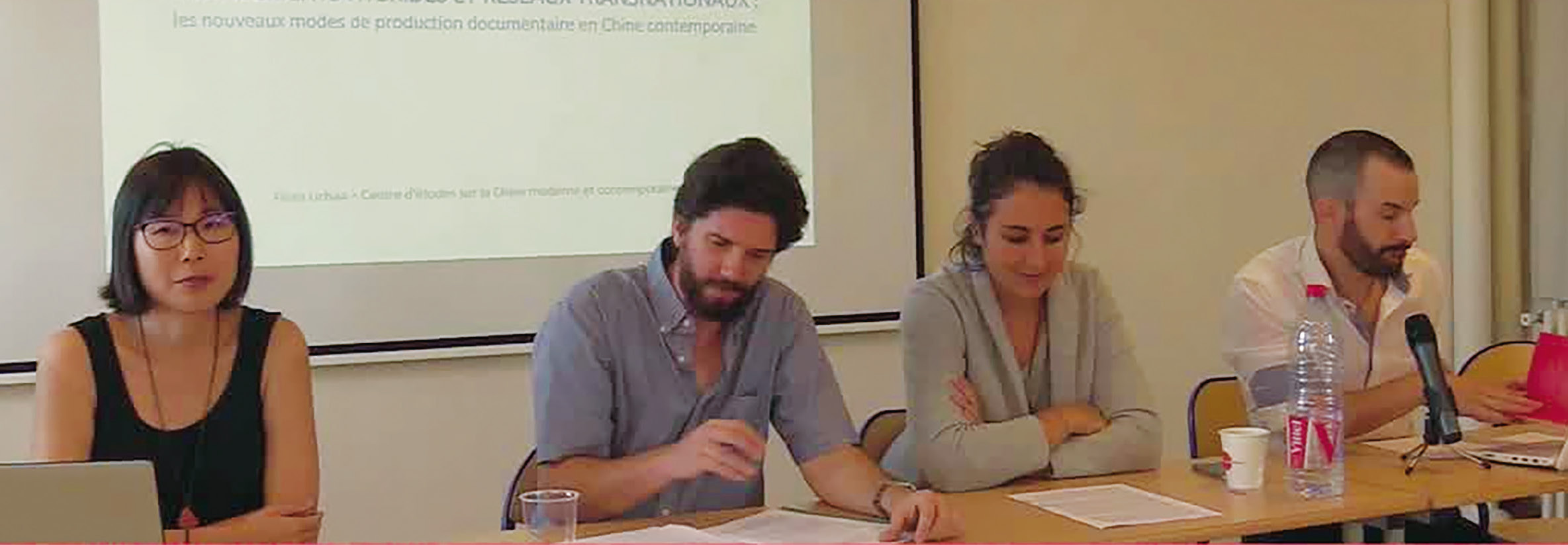The French Academic Network for Asian Studies (GIS Asie): international promotion of Asian studies
This summer, the French Academic Network for Asian Studies (GIS Asie) will be co-organizer of the 11th International Convention of Asia Scholars (ICAS), together with the International Institute for Asian Studies (IIAS) who hosts the ICAS Secretariat at its offices in Leiden, and Leiden University, this edition’s local hosts. This major event will offer scholars an opportunity to gather and share their research, publications, and projects. It will enable them to meet with other scholars, publishers, specialists, and members of civil society. In many respects, the involvement of GIS Asie in this convention reflects the current challenges and opportunities faced by the promotion of Asian studies in the French and broader European context.
In this article, we explore these challenges and opportunities. They include first and foremost the bringing together of Asia scholars. To attain this goal, GIS Asie establishes strong and sustainable relationships between institutions. It organizes major international conferences every two years, but also more frequent meetings and regular activities. In line with this general orientation, specific actions are carried out in favor of and with the active participation of young scholars, who are expected to play a key role in the future of Asian studies. Through these multiple activities, GIS Asie intends to act as a significant operator in area studies.
A network based on sustainable relationships
In the French institutional landscape, the French Academic Network for Asian Studies is a “Groupement d’intérêt scientifique” (GIS), which is a formal agreement between public research institutions and higher education institutions. Based on this strong institutional basis, all relevant research centers can participate. GIS Asie brings together scholars from a variety of disciplines across the humanities and social sciences, working on all Asian countries.
Currently, the 23 members of GIS Asie include 8 universities, 11 research and training institutions, 2 research institutes and one foundation. Leaning on this institutional agreement, 29 research centers participate. Among them, 24 are located in France, 5 are in Asia and 1 in Belgium. Due to the specificity of the French institutional landscape, a large number of the research centers located in France are concentrated in Paris and surrounding region. However, GIS Asie is keen on promoting the activities of research centers located in various parts of the country, and includes members in the two big cities of Lyon and Marseille, as well as in smaller cities like Angers.

Leaflet of GIS Asie, 2019
We estimate that the French Academic Network for Asian Studies includes approximately 80% of all scholars interested in the field, representing more than 1,000 individuals. There is a great diversity of their profiles regarding their topics, disciplines and geographical region of interest. Their works concern all social sciences and humanities, ranging from history, literature, anthropology, and linguistics to geography, economics, demography, geography and political sciences. Their research potentially concerns all areas of Northeast, Southeast, South and Central Asia. This network is supported by a technical and administrative team from the French National Center for Scientific Research (CNRS), which plays a crucial role in the preparation, management and organization of all activities. CNRS is the largest governmental research organization in France, and the main stakeholder of GIS Asie.

Members of GIS Asie, 2019.
A network in Europe and in Asia
Established in 2013, in the French academic landscape, GIS Asie remains open to collaborations with institutions from other countries active in the domain of Asian studies.
Membership is open to universities and research institutes in France but also abroad, primarily to French-speaking institutions. The first and unique non-French full member to date is the Université Libre de Bruxelles in Belgium, which joined the network in 2017. This high ranking university, with more than 30,000 students, teachers and permanent staff is active mainly through the activities of its East Asian Studies research center (EAST), established in 2016 and which benefits from a strong expertise in social anthropology.
The network of GIS Asie extends beyond the boundaries of Europe, as it also includes 5 French research centers in Asia (Unité Mixte des Instituts Français de Recherche à l’Etranger, UMIFRE). They include the French Center for Research on Contemporary China (CEFC) located in Hong Kong (China), with two regional branches, one in Beijing (China) and one in Taipei (Taiwan); the Institut Français de Recherche sur le Japon at the Maison Franco-Japonaise in Tokyo (Japan); the Research Institute on Contemporary Southeast Asia (IRASEC) in Bangkok (Thailand); the Centre for Social sciences and Humanities (CSH) in New Delhi (India); the French Institute of Pondicherry (IFP) in Puducherry (India). These centers work under the joint administrative supervision of the French Ministry for Foreign Affairs and the National Center for Scientific Research (CNRS). They benefit from resources and permanent staff. They provide support to establish, maintain and develop collaborations with academic communities in Asia. They also host senior and junior researchers who attend on a short term basis.
Since 2018, and in collaboration with GIS Asie, these centers conduct a scientific research programme entitled “Sustain Asia”, which contributes to the reflection on social and environmental resilience in various national and local contexts characterized by rapid economic growth and limited resources, in countries such as China, India, Indonesia, Japan and Thailand. First results from this work in progress will be presented in several panels at ICAS 11.
GIS Asie also participates in the European Alliance for Asian Studies, a cooperative platform which brings together competences and expertise on Asia and Asian studies in Europe. Currently, institutions from 14 countries participate in this Alliance, including other consortia such as the German Institute of Global and Area Studies (GIGA) and the Nordic Institute of Asian Studies (NIAS). An institutional roundtable at ICAS 11 will discuss the challenges facing these institutions, whose sizes, means and historical contexts are heterogeneous. Through its participation, GIS Asie fosters collaborations between universities and research centers across Europe, discusses institutional programs and realization, facilitates communications and promotes the visibility of scholarly excellence. At ICAS 11, it will be convening roundtables on the participation of European institutions in the field of Asian studies.
Organizing major international events
The 11th edition of ICAS, inaugurated in 1997, will also be the 7th International Conference organized by the French Academic Network for Asian Studies since 2003. The organization of a biennial international congress is at the forefront of GIS Asie’s activities, with the aim to increase visibility of Asian studies and foster exchanges between scholars.
GIS Asie benefits from an extensive experience in organizing large scale international congresses. Previous international Asian studies conferences organized by GIS Asie clearly met the needs of many scholars, as witnessed by the increasing number of participants over the years, reaching more than 900 people in 2017 in Paris. The conference to be held in Leiden will exceed this number, with approximately 2000 participants expected to attend. GIS Asie certainly plays a significant role in this endeavor, thanks to the support of its stakeholders and sponsors. The resources mobilized by GIS Asie will enable numerous scholars to benefit from a funding scheme to supplement their resources in a period when financial means are scarce.
The involvement of GIS Asie in the preparation of ICAS 11 includes multiple scientific and organizational aspects. As members of the scientific committee, the director and the deputy director of GIS Asie evaluated all 346 panels and roundtables submitted, each of them including 3 to 6 presentations.
The ICAS Book Prize involves publications in several languages. This year, for the second time, GIS Asie will be sponsor and secretariat of the ICAS-GIS Asie Book Prize, which will honor outstanding works in the French language. Among 36 submitted books, 7 have been shortlisted by the reading committee chaired by the GIS Asie director. The 1st edition of this prize took place in 2017 and the award was presented during ICAS 10 in Chiang Mai, Thailand. It honored Marine Carrin’s book entitled “The Language of the Gods. Santal Ritual Discourse Between the Oral and the Written”. This book was a result of the author’s thorough investigation into the history and culture of the Santals, a tribal group who lives in India, and more broadly in Eastern South Asia.

Young researcher seminar on “Networks, exchanges and interactions in Asia”, EHESS Paris, September 2018.
GIS Asie, in collaboration with its partners participating in ICAS 11, will also seize the opportunity to enhance contacts between scholars, editors, journals and associations working on Asia. Besides scientific work, it will support the participation of prominent artists who share their love for Asia in their own peculiar way. This will be part of the enjoyable moments of what should become a memorable gathering.
Preparing the future of Asian studies
Young scholars, including doctoral students, post-doctoral fellows and young researchers in search of a permanent position, not only hold invaluable and often firsthand knowledge of their area of specialization, but their work and career will also shape the future of Asian studies. For this reason, supporting and promoting their research work is at the forefront of GIS Asie’s goals and activities. It takes various forms.
Young scholars are encouraged to seize the opportunity of ICAS 11 to present and discuss their work with a large international audience. GIS Asie fosters their participation by offering financial support specially geared towards young scholars. In previous editions of GIS Asie’s international conference, young scholars have played a major role, taking part in panels and contests.
Besides financial support, special sessions will be organized to promote outstanding work done by doctoral students. Among them, the awardees of the GIS Asie 2018 PhD prize are offered an opportunity to present their work. Overall, more than 60 candidates from all social sciences and humanities disciplines who defended their doctoral dissertations in 2016 or 2017 in France and Belgium participated. The selection committee chaired by GIS Asie’s deputy director included 106 reviewers. Twenty candidates were shortlisted and three joint prizes were awarded. The winning works illustrate the diversity of topics, disciplines and geographical areas in Asian studies: David Serfass’ thesis “The Collaborating Government of Wang Jingwei: Aspects of the State of Occupation during the Sino-Japanese War, 1940-1945” is at the crossroads of China’s modern state and Japan’s Empire; Clemence Jullien’s thesis “From the Slum to Hospital: Anthropology of Reproductive Health in Rajasthan (India)” is based on an ethnographic fieldwork in a public hospital and several slums; Juliette Cleuziou’s thesis “Marriages, De-marriages and Re-marriages: Ritual, Gender and Kinship in Contemporary Tajikistan” explores social and ritual roles of women in urban and rural areas. Each winner received 2000 euros, earmarked for the publication of their work. The awards ceremony, which took place in the historical salons of the Maison de l’Asie in Paris, was preceded by a lecture delivered by Prof. Ben Kiernan from Yale University. In his brilliant presentation about “A World History of Genocide”, Prof. Kiernan offered the audience a broad perspective on mass violence and crimes against humanity in Asia and in other regions.
Young scholars also initiated and organized one-day workshops in 2018. The first one was entitled “Young Researchers in the ‘Publish or Perish’ Competition”; the second one dealt with “Networks, Exchanges and Interactions in Asia” and benefited from additional funding from the Campus Condorcet program. Each workshop gathered some forty scholars in Paris and was an opportunity for young researchers to present their work, express their views and concerns, and learn from each other and from senior researchers. In addition to these workshops, meetings with invited senior fellows are regularly organized to give young scholars the opportunity to present their ongoing work. In 2018, such meetings were organized with Prof. Sumathi Ramaswami, cultural historian of South Asia and the British Empire at Duke University in the United States, and Prof. Yoshida Toru, political scientist at Hokkaido University in Japan.
Since 2013, young scholars also directly participate in GIS Asie’s governance. Their activities are coordinated by a specific steering committee, consisting of 6 to 8 young scholars who participate in the regular meetings of GIS Asie’s scientific committee. They therefore take part in the decision process regarding the activities of the network, and benefit from the support of GIS Asie administrative and technical staff.
Funding scholarly events and organizing specific meetings
GIS Asie membership provides full access to all activities and funding schemes. GIS Asie also supports major conferences organized by its member teams. In 2018, beneficiaries included the International Association for Tibetan Studies, whose 15th Conference is taking place in July 2019 in Paris; the 25th European Conference on South Asian Studies, which operates under the auspices of the European Association for South Asian Studies (EASAS); and the 12th Journées du Reseau DocAsie, which gathers librarians and archivists specialized in Asia.
GIS Asie support of conferences is complemented by the dissemination of information regarding potential funding for scholars in the social sciences and humanities. Throughout the year, GIS Asie broadcasts information on ongoing calls and support programs through its website. It participates in meetings with national, European or international funding agencies in order to advocate for Asian studies and to discuss possible orientations prior to launching calls. As an example, meetings were held in 2018 with the French National Research Agency (ANR), the main funding source for research activities in France, as well as with members of the European Union's framework program for research and innovation (Horizon 2020). All this information is accessible through the website, which was renewed in January 2018, and through the monthly newsletter sent to all interested parties.
Fostering area studies
Area studies have a specific place in the field of social sciences and humanities, to which the French Academic Network for Asian Studies aims to contribute by both focusing on Asian studies and also collaborating with consortia working on other geographic areas. Since 2016, thanks to the support of the French National Center for Scientific Research (CNRS), GIS Asie has benefited from the expertise of a specialist in international relations who works simultaneously for 2 other consortia, one on Africa (GIS Afrique) and the other one on the Muslim Worlds and the Middle East (GIS Moyen-Orient et Mondes Musulman). This creates a synergy and ‘good practices’ are replicated between the consortia. The 3 consortia on area studies also conduct some common activities. For instance they will organize a summer school in 2020 on digital humanities for the area studies, which will aim at exploring new technologies and skills, as well as their impact on research topics in various contexts.
This dynamic across area studies is expected to develop, as GIS Asie will install itself at the new Condorcet Campus in the northern part of Paris in September 2019. This new location dedicated to research and training in research in humanities and social sciences will be home to 100 research teams, including the GIS Institut des Amériques, another consortium that is a prominent institution for American area studies in France. Our network will also benefit from the many services and equipment offered by this brand new infrastructure.
As a major event embedded in a whole range of activities, ICAS 11 is therefore a great opportunity for the French Academic Network for Asian Studies and its partners, to advance and enhance the international promotion of Asian studies.
Myriam de Loenzien, Deputy Director of GIS Asie
Catherine Bastien-Ventura, International Cooperation Officer of GIS Asie